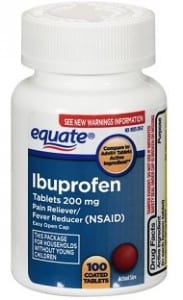
A drug-free placebo pill prevents migraines in kids and teens as effectively as most headache medicines, according to the available evidence.
Researchers found that only two drugs known to help adult migraines reduced kids’ headaches better than placebo. The effect was small, less than one headache per month compared to the fake headache pills.
Neurologist and headache specialist at Children’s Mercy Hospitals and Clinics in Kansas City, Mo, said, “Parents should be aware that our medication choices aren’t as good as they should be.”
No Drug approved for Kids’ Migraines
Bickel wasn’t involved in the new research. She said no drugs have been rigorously tested and approved for preventing migraines in kids. Doctors have traditionally relied on headache drugs made for adults.
Bickel told Reuters Health that parents may want to look into relaxation techniques, such as meditation, to help their kids’ headaches.
Cleveland Clinic data indicates that roughly 2 percent of small children and 7-1o 10 percent of older kids and teenagers up to 15 suffer from migraines.
Study Review
Dr. Jeffrey Jackson from the Medical College of Wisconsin in Milwaukee and his colleagues looked at 21 trials that comparing headache drugs to one another or placebos. Only topiramate (marketed as Topamax) and trazodone (Oleptro and Desyrel) significantly reduced the frequency of headaches in kids and teens who got regular migraines, according to the researchers.
“All the drugs in our analysis have been found effective in adults with migraine headaches, but few were beneficial among children,” Jackson’s team wrote. Other adult headache prevention medicines – including flunarizine, propranolol and valproate – failed to help, showing there may be something different about pediatric and adult migraines.
Bickel said there is the least research on the one percent of kids with chronic daily headaches who are most severely affected by migraines. She said there is no evidence to suggest the medications are beneficial.
Placebo Power
In the analysis published in JAMA Pediatrics in 2013, placebo pills alone led to a drop in kids’ headache frequency from between five and six headaches per month to three per month.
Bickel said that may have to do with the effect of seeing a doctor and being told the pain wasn’t anything serious.
According to a report from the FDA published in the same journal issue, two drugs – almotriptan malate (Axert) and rizatriptan benzoate (Maxalt) – are approved to treat kids’ and teens’ headaches.
Placebo for Kids vs. Adults
Dr. William Rodriguez and his colleagues at FDA also found in reviewing the evidence that kids tended to get better after placebo treatment more often than adults did, but that could be a result of the kids’ generally shorter duration headaches as well.
Bickel said that for kids who get headaches once a week or less can be treated with over the counter painkillers, or even just waited out in a quiet place. But recent studies of Ibuprofen tripling heart attack risk in adults tell us we may yet have a lot to learn about the safety of OTC medications such as Ibuprofen or Motrin, and kids mixing OTC drugs have suffered horrendous injuries.




